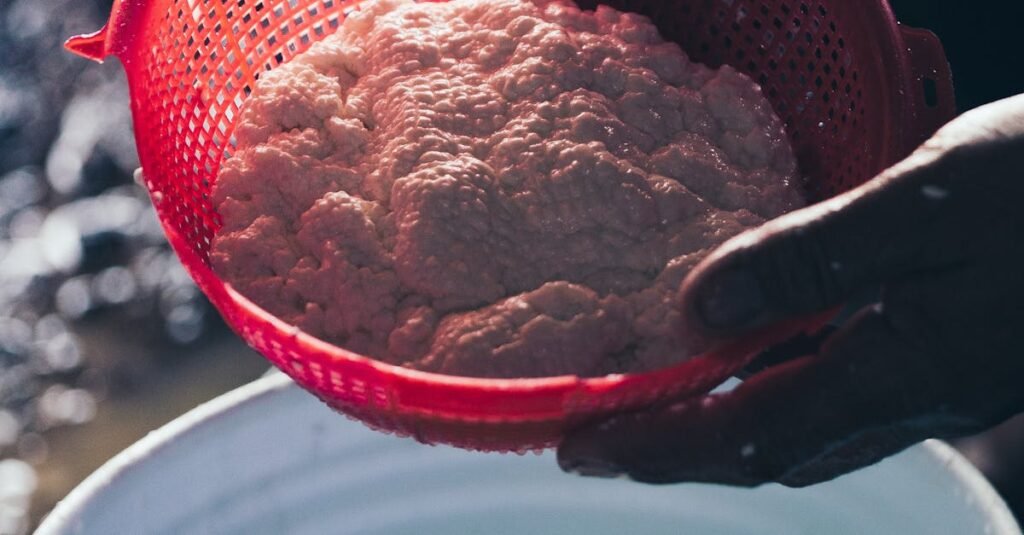Whey protein has become a staple in the fitness and nutrition world, known for its muscle-building benefits and versatility in various diets. Among the different types of whey protein, whey protein isolate has gained popularity, but many people are still unsure about the differences between the two. In this article, we will explore the key distinctions between whey protein and whey protein isolate, allowing you to make informed decisions about your supplementation.
| Aspect | Whey Protein | Whey Protein Isolate |
|---|---|---|
| Protein Content | Approximately 70-80% | Approximately 90% or more |
| Lactose Content | Higher lactose content | Minimal lactose content |
| Fat Content | Higher fat content | Lower fat content |
| Processing | Less processed | More processed |
| Cost | Generally less expensive | Generally more expensive |
| Flavor | Rich flavor | Neutral flavor |
| Best For | General fitness enthusiasts | Those with lactose intolerance or seeking lean protein |
Protein Content
The primary difference between whey protein and whey protein isolate is the protein content. Whey protein typically contains about 70-80% protein, while whey protein isolate boasts a higher concentration of approximately 90% or more. This higher protein percentage in isolate makes it a more concentrated source of protein, which can be beneficial for those who need to increase their protein intake without consuming excess calories from fats and carbohydrates.

Lactose Content
Whey protein contains a higher amount of lactose compared to whey protein isolate. For individuals who are lactose intolerant, consuming regular whey protein may lead to digestive discomfort, such as bloating and gas. Whey protein isolate, on the other hand, undergoes additional processing to remove most of the lactose, making it a suitable option for those who struggle with lactose digestion.

Fat Content
Another significant difference is the fat content. Whey protein generally has a higher fat content than whey protein isolate. This can be an important factor for those who are monitoring their fat intake, especially in diets aimed at weight loss or muscle definition. Whey protein isolate typically contains minimal fat, allowing for a leaner protein source.

Processing
The processing methods used for whey protein and whey protein isolate differ as well. Whey protein is less processed and retains more of its natural components. In contrast, whey protein isolate undergoes additional filtration processes to achieve its higher protein concentration, which can result in a purer protein product with fewer additional nutrients.

Cost
Cost is a practical consideration when choosing between the two. Whey protein is generally less expensive than whey protein isolate. This price difference can be attributed to the processing methods and the concentration of protein. For budget-conscious consumers, whey protein may be the more appealing option, especially for those who do not have specific dietary restrictions.

Flavor
Flavor profiles also vary between the two. Whey protein tends to have a richer flavor due to its higher fat content, making it a favorite for those who enjoy tasting their protein shakes. Whey protein isolate, however, has a more neutral flavor, which can be advantageous for mixing with other ingredients or for those who prefer a less pronounced taste.

Best For
Finally, the best use for each type of protein differs. Whey protein is ideal for general fitness enthusiasts who are looking to supplement their diet with protein without strict dietary limitations. Whey protein isolate is particularly beneficial for individuals with lactose intolerance or those seeking a higher protein intake with minimal fat and carbohydrates. It is also preferred by athletes and bodybuilders who need to adhere to specific macronutrient ratios.

FAQ
1. Can I use whey protein if I’m lactose intolerant?
Yes, you can use whey protein isolate, as it contains minimal lactose. Regular whey protein may cause discomfort for those with lactose intolerance due to its higher lactose content.
2. Is whey protein isolate better for muscle building?
Whey protein isolate has a higher protein concentration, making it a good choice for muscle building, especially for those who need to control their caloric intake.
3. How do I choose between whey protein and whey protein isolate?
Consider your dietary needs, budget, and fitness goals. If you are lactose intolerant or need a leaner protein source, opt for whey protein isolate. If you’re looking for a more cost-effective option and don’t have dietary restrictions, regular whey protein may suffice.
4. Can I mix whey protein with other ingredients?
Absolutely! Both whey protein and whey protein isolate can be mixed with water, milk, smoothies, or added to recipes like pancakes or protein bars for an extra protein boost.
References:
– [U.S. Department of Agriculture – Protein](https://fdc.nal.usda.gov/)
– [National Institutes of Health – Whey Protein](https://ods.od.nih.gov/factsheets/WheyProtein-HealthProfessional/)



